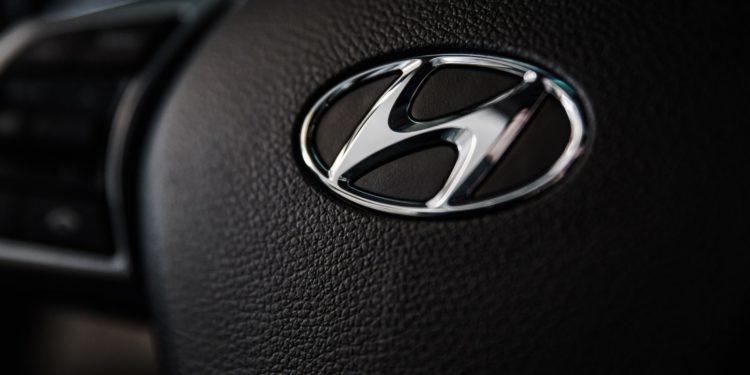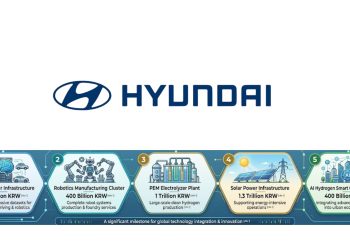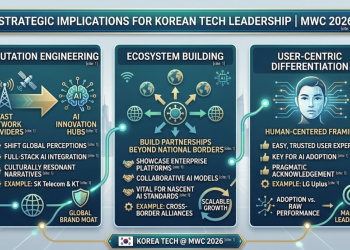Hyundai Motor Group announced an investment of 68 trillion won ($51 billion) over three years to support its plans in electric vehicles (EVs) and the new mobility sector.
The investment includes allocating 35.5 trillion won towards new research and development infrastructure and assembly lines for EVs. An additional 31.1 trillion won will be directed towards research and development efforts in electric vehicles, encompassing software-defined vehicles (SDVs) and battery technology.
With the investment, Hyundai aims to enhance its competitiveness and accelerate its growth by expanding the footprint of its electric vehicle segment.
Hyundai Motor Group revealed that many of the 80,000 new jobs created will be dedicated to advancing future business endeavors. It will have 44,000 new staff expected to focus on electrification, software-defined vehicles (SDVs), and achieving carbon neutrality.
The conglomerate, comprising Hyundai Motor and its affiliate Kia, holds the third position globally among automakers based on sales volume. Additionally, Hyundai Mobis, an automotive parts manufacturer, and Hyundai Engineering & Construction are integral parts of the group.
The investment announcement of 68 trillion won ($50.5 billion) aims to help the company with continuous adaptation and innovation. With a major portion of the investment directed towards the automotive sector, including future mobility initiatives, the conglomerate will establish solid foundations for sustainable growth and technological advancement.
Hyundai Motor Group’s EV strategy encompasses investments in infrastructure, software, battery technology, and autonomous driving technologies.
However, a report by Greenpeace in November highlighted concerns regarding Hyundai’s transition to electric vehicles. Despite the company’s efforts in the EV sector, its increasing sales of gas-guzzling SUVs have offset the environmental benefits of EV adoption. The report emphasized that Kia’s SUV sales had surged by over 150 percent in the past decade, posing challenges to the company’s climate objectives.
According to the environmental group, SUVs emit approximately 12 percent more carbon dioxide than sedans because of the need for Hyundai to decrease SUV sales to mitigate ecological impact.
Responding to the report, Hyundai emphasized the expansion plans of its lineup of fully electric SUVs, citing models such as Kia’s EV6 and EV9 as part of its efforts to address environmental concerns.
In addition to Hyundai Motor and Kia, other entities under the conglomerate umbrella include automotive parts manufacturer Hyundai Mobis and construction firm Hyundai Engineering & Construction. These subsidiaries contribute to Hyundai Motor Group’s diverse portfolio and play integral roles in the conglomerate’s operations and strategic initiatives.
Also Read:
- LG Group’s $74 Billion Investment Drive: A 5-Year Blueprint for Future Innovation
- Samsung Secures $752 Million Contract with Naver for Mach-1 AI Accelerator Chips
- KT’s Leap into Robotics: Collaborating with Daedong for Agricultural Technology Innovation
- Hanwha Aerospace to Lead South Korea’s Next-Generation Space Rocket Project
- Tech Innovation Drive: South Korea to Invest $699 Million in National Intellectual Property Projects







